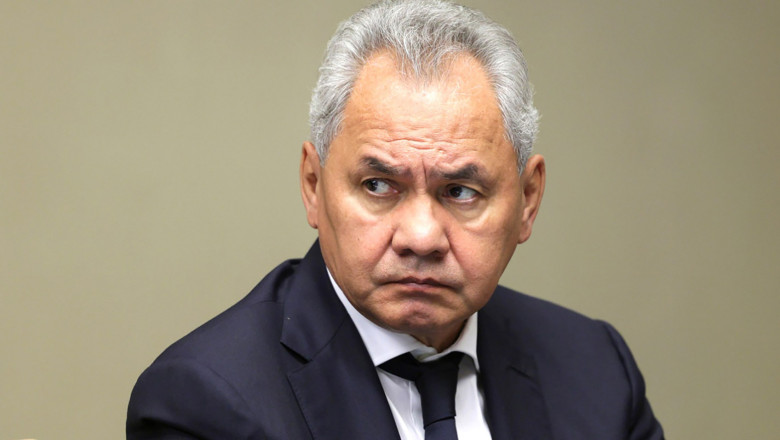The deployment of Western “peacekeeping forces” in “Russian historical territories” is a scenario that “could lead to a direct confrontation between NATO and Russia, even to a longer-term Third World War,” warns the Russian Security Council secretary Sergei Shoigu in an interview with the official Russian news agency Tass on Thursday.French President Emmanuel Macron mentioned in a press conference in Paris at the end of March the possibility of “reassurance forces” that could be deployed in Ukraine, a plan supported by the United Kingdom, news.ro reports. These forces, according to Macron, “do not have the vocation to be peacekeeping forces,” nor “forces present on the contact line,” and nor forces that would replace the Ukrainian army. They will be “present in strategically identified locations in advance with the Ukrainians” and will have “a deterrent character against a potential Russian aggression,” he said. According to Russian Security Council Secretary Sergei Shoigu, an organization established in 1991 with the purpose of advising the Russian president in shaping his national security policy, it would be more accurate to qualify these troops as invaders and occupiers. This “peacekeeping mission” is just a cover for “controlling Ukraine and its mineral resources,” according to Shoigu.
Sergei Shoigu, former Minister of Defense under Vladimir Putin from 2012 to 2024, reaffirms in this interview that “Russia reserves the right to use nuclear weapons in case of aggression against it or the Republic of Belarus, including the use of conventional weapons.” Russia “closely monitors the military preparations of European countries,” he warns. “According to the National Security Strategy of the Russian Federation, in case foreign states commit hostile actions that constitute a threat to the sovereignty and territorial integrity of the Russian Federation, our country considers it legitimate to take symmetrical and asymmetrical measures to suppress such actions and prevent their repetition,” says Sergei Shoigu. Deterrence by nuclear weapons, he emphasizes, “is directed against the United States and military coalitions that consider Russia a potential enemy and possess weapons of mass destruction or a significant potential for combat of versatile forces.”
Such actions will also apply to states that provide their territories and resources for the preparation and execution of aggression against Russia, Tass concludes.

